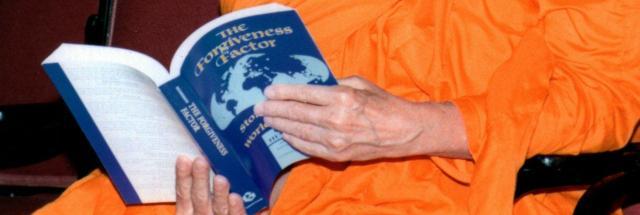KBOO 21 August 1986
I suspect that there may be some listeners who would be happy if they never saw another article about the Statue of Liberty. At the beginning of the year I started to clip out pieces from newspapers and magazines about Lady Liberty with the idea of doing something myself. But I was soon overwhelmed by the torrent of words and decided to be one columnist who didn’t.
Not, I hasten to add, from any feeling of disdain or underestimation of the importance of the statue’s centenary and America’s biggest birthday party. Every time a cynic wrote I was tempted to jump into the fray. Despite all the difficulties the United States is currently going through in getting control of its borders, all the controversy over illegal aliens and the sanctuary movement, this country remains for the world a symbol of freedom in a world painfully short of that vital commodity. One had only to read the moving comments of many of the new citizens who were sworn in on the 4th of July to realize this afresh.
I face a dilemma whenever it comes to speaking about patriotic subjects. I meet many Americans who do not fully grasp what the freedom and wealth and profoundly moral character of this country mean to millions outside these shores, who seem not to want to accept that in a world where repression and hunger abound the US still represents a, if not the, hope. I try to speak in a way that diminishes their doubt and shores up their faith in our democratic system and our free society.
In doing so, however, it is easy to encourage, even unconsciously, another equally disappointing attitude that from time to time comes to the fore, an aura of self-satisfaction, even a belief that somehow Americans are endowed by their creator with certain special virtues denied to lesser mortals. As Bob Webb, of the editorial board of the ‘Cincinnati Enquirer’, wrote me recently, ‘We Americans have become dangerously obsessed with our own goodness in a world where our imperfections stand out in bold relief to those of other lands, cultures and religions.’
I remember when the English playwright, Peter Howard, was writing a satirical musical and seeking inspiration for the national anthem for the land of Eiluphmei, symbolizing our materialistic West, he found it in the words of a certain American senator: After listening to this pompous individual Howard wrote a Western anthem with chorus: ‘It surely won’t take very long, all together to say, we are right, we are right, we are right, we are right – they are wrong.’
The Senator had a different approach than that exemplified by the second verse of ‘America the beautiful’: ‘America, America, God mend thine every flaw. Confirm thy soul in self-control, thy liberty in law.’
However, in speaking about the Statue of Liberty today I have avoided the earlier dilemma. I want simply to pay my offshore island tribute to the French connection. One of the earlier pieces of literature on the Statue of Liberty, received this year was a beautifully produced issue of ‘France’ magazine devoted to the centennial and published by Maison Francaise in Washington, D.C. I read in it that France was presenting to each of the fifty states a glass replica of the Statue of Liberty, a gift by Saint-Gobain, the largest French glass maker.
I discovered from the Governor’s office that Oregon’s crystal replica will be officially handed over at the opening of the State Fair’s Statue of Liberty week tomorrow. The new French Consul General, Barnard Viaux, will come from San Francisco to make the presentation. The replica will then be kept in the Governor’s ceremonial office. Governor Atiyeh, accepting the gift, will stress the long tradition of friendship and cooperation between France and the United States, the shared experiences that have brought the two nations together and the shared dreams they hold for peace and understanding.
It is sad that in recent months a cloud should have come over that friendship, provoked by the French government’s decision to refuse overflight permission for the US planes attacking Libya. Overlooked in the reaction of many Americans is France’s stalwart record in combatting terrorism, of opposition to Gaddafi, of resisting Soviet aggression, of being ahead of the rest of Europe in standing up for American missile deployment in Europe in 1983 just as it was in standing with the US in the Berlin blockade and the Cuban missile crisis, of shared sacrifices under fire from the current crisis in Lebanon back two hundred years to the days of Lafayette and the American revolution. Opinion polls show that the French public thinks more highly of the United States than does the public in other European countries.
Jack Lang, until recently French Minister of Culture, has his explanation of this sudden flare up after the Libyan incident: ‘Our American friends love to be loved. And we French, who so often puff ourselves up with vanity, have scarcely any right to reproach them for it. But the American passion for being the object of unqualified adoration sometimes prevents them from recognizing their true friends.’
Let us hope that the festivities around the Statue of Liberty, itself a gift to symbolize Franco-American friendship, will have reminded us that France is not only the oldest but the strongest ally of the United States.
Footnote: you may be surprised at the origin of a word in common usage – gadget. It derives directly from the name of the French studio Gaget Gauthier where the thin sheets of copper were fashioned for The Statue of Liberty. It was the name given to small replicas of the statue.

